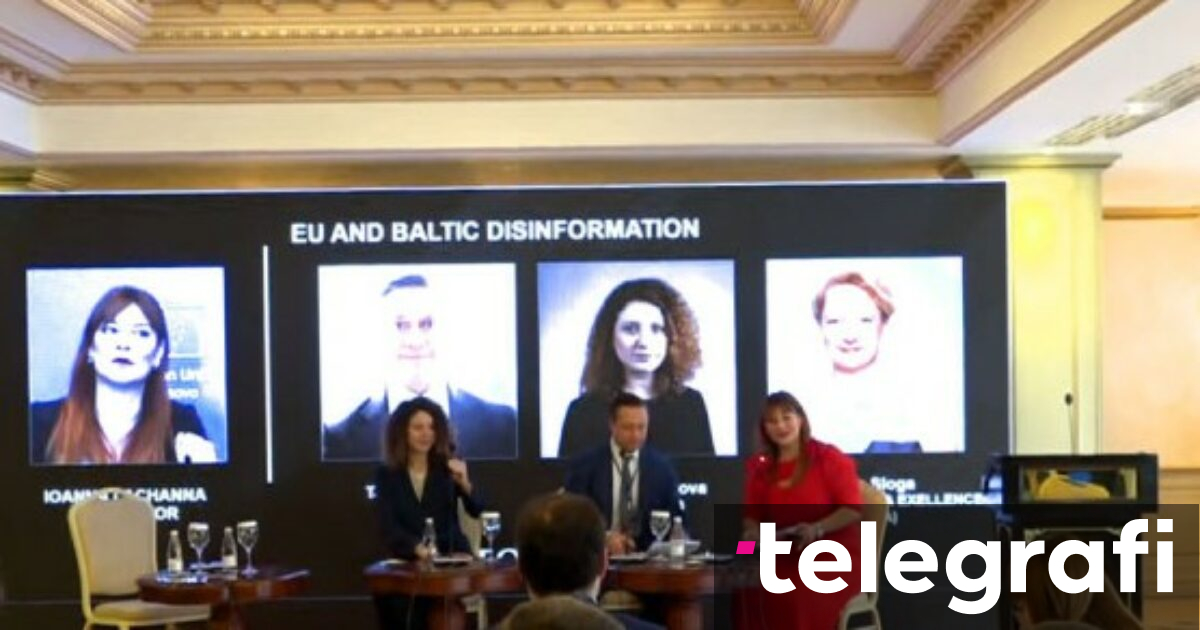cross-posted from: https://slrpnk.net/post/18388964
The intensity and danger of hybrid threats, as well as disinformation, has been increasing in recent years, while Russia and China are considered the main actors of these threats, according to experts and diplomat at the recent “Balkan Disinfo 2025” conference, which is being held in Pristina.
…
Finnish diplomat Tapio Pysalo said that these two countries are cooperating to spread disinformation, also using artificial intelligence.
…
“The intensity and dangerousness of hybrid threats has been increasing in recent years, especially considering Russia and the People’s Republic of China as the main threat actors. Their objective above all is to undermine our partnerships by sowing divisions within the EU and NATO, by hindering NATO enlargement, especially the EU in the Western Balkans, by undermining democratic institutions including the credibility of elections, by undermining public trust and by polarizing our societies, thereby affecting the stability of our society.”
“The goal is to sow uncertainty, fear, undermining public trust and weakening the support we give to Ukraine. I believe that all of this can also be applied to disinformation as a general trend, and in disinformation we see that both China and Russia have escalated their operations in Europe and the US. Russia has invested heavily in disinformation,” he said.
…
Consultant specializing in new challenges to election integrity, Ben Graham, emphasized that in the United Kingdom, where he comes from, there is a strengthening of pro-Russian narratives from networks of the People’s Republic of China.
But, he added that the numerous electoral processes that marked the past year have created some positive aspects for combating disinformation more effectively [but he emphasizes also that] we must also look at the psychological aspects of why people believe this disinformation and how they can convince people. I think we need to work more eloquently in the opposition".
“We see a greater strategic alignment with our adversaries, we see an increase or strengthening of pro-Russian narratives from the networks of the People’s Republic of China, and it is important that we work together to counter them.”
…
Researcher and digital intelligence expert, especially on manipulation campaigns and foreign information influence, Benjamin Schultz from the United States, stated that due to executive orders received from the new American presidency, an attack on researchers is taking place.
According to him, the US has become a hyper-polarized society.
…
The 2025 Balkan Disinfo Conference laid bare the systemic rot—hybrid warfare isn’t just asymmetric conflict but a weaponized ecosystem where autocrats and compromised elites co-produce societal decay. Russia and China’s AI-fueled disinfo pipelines aren’t merely destabilizing; they’re industrializing distrust to fracture NATO’s cohesion while Balkan leaders perform EU-aligned pantomimes.
It’s ironic how Balkan leaders pledge to combat foreign interference while their own rhetoric fuels polarization. The EU’s accession demands now include “fighting disinfo,” yet local elites weaponize the same tactics to cling to power. A self-licking ice cream cone of hypocrisy.
Meanwhile, the U.S. isn’t immune—researchers face witch hunts under the guise of “anti-bias” policies. When academia becomes collateral in culture wars, truth becomes the first casualty. We’re building moats around castles while the enemy floods the villages.
A lot of local political leaders in the Balkans are aligned with China and Russia. This has nothing to do with the fact that China and Russia spread disinformation.
Your claim that Balkan leaders aligning with Russia and China has “nothing to do” with their disinformation campaigns is naive. Russian and Chinese influence in the Balkans thrives on disinformation pipelines, exploiting societal fractures to undermine NATO and EU cohesion. This is not speculation—documented evidence shows how Kremlin-backed narratives are disseminated through local proxies, media outlets, and even political actors.
China’s approach may differ, focusing on economic leverage and infrastructure deals, but it still shapes public opinion by pushing narratives of “traditional friendship” and “shared past.” These tactics aren’t incidental; they’re deliberate strategies to expand influence.
Ignoring this context oversimplifies a complex geopolitical game. Leaders don’t align in a vacuum—they respond to the pressures and incentives created by these campaigns.
Good post. Thanks for sharing.



